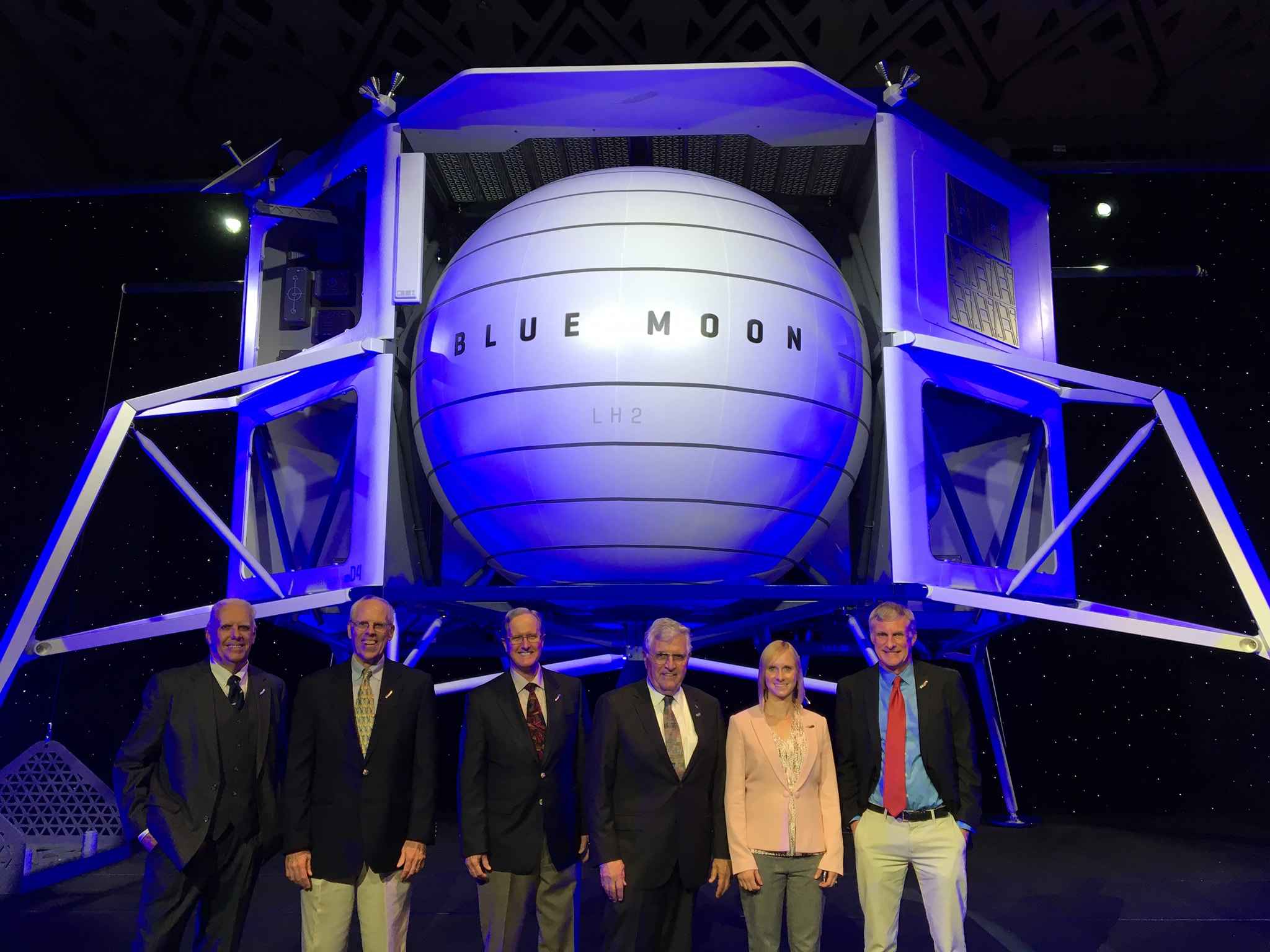Faculty Awards
Ray Arvidson, James S. McDonnell Distinguished University Professor, received a grant from Johns Hopkins University/NASA to support Extended Mission 5 of the Compact Reconnaissance Imaging Spectrometer for Mars (CRISM). Arvidson also received an award from JPL/NASA to support his role as interdisciplinary scientist for the Mars Odyssey Eighth Extended Mission.
Alexander S. Bradley, associate professor, received a grant from the Simons Foundation in support of research on the biogeochemical consequences of metabolic heterogeneity and marine microbial carbon degradation.
Jeffrey G. Catalano, professor of Earth and planetary sciences, has been appointed the next executive editor of Geochimica et Cosmochimica Acta, the official journal of the Geochemical Society and the Meteoritical Society. Catalano also received multiple research awards from NASA. A grant from the NASA Astrobiology Institute supports Catalano's research in the Earth First Origins project, which seeks to uncover the conditions on early Earth that gave rise to life by identifying, replicating, and exploring how prebiotic molecules and chemical pathways could have formed under realistic early Earth conditions. An award from the Department of Energy also supports Catalano’s study of trace metal dynamics and limitations on biogeochemical cycling in wetland soils and hyporheic zones.
David Fike, professor of Earth and planetary sciences and director of environmental studies, received an award from NASA's Ames Research Center for a project titled "Abiotic and biological sulfate reduction in serpentinizing systems." Fike also received a grant from Agouron in support of the 2019 Midwest Geobiology Symposium.
Anne M. Hofmeister, research professor, received support from the National Science Foundation for a laser flash apparatus to simultaneously measure thermal diffusivity and heat capacity from 173-773K.
Bradley Jolliff, Scott Rudolph Professor of Earth and Planetary Sciences, received a grant from NASA/UNM to support his work with the University of New Mexico's Consortium for the Advanced Analysis of Apollo Samples.
Bronwen Konecky, assistant professor, received the Nanne Weber Early Career Award from the Paleoceanography and Paleoclimatology Section of the American Geophysical Union (AGU). The award recognizes significant contributions in paleoceanography and paleoclimatology from researchers within 10 years of completing their PhDs. Honorees are selected on the basis of outstanding research impact, interdisciplinary work, leadership, and mentoring.
Rita Parai, assistant professor, was awarded support from the National Science Foundation for a project titled "Tracking carbonate from slab to surface with Sr and B stable isotopes and experimental geochemistry." Parai also received a grant from the Department of Energy's National Nuclear Security Administration for a project titled "Seeing through the fission: Multi-modal analyses of actinides and noble gas isotopes in geological samples."
Philip Skemer, associate professor of Earth and planetary sciences and associate director of the Institute of Materials Science & Engineering, received a grant from the National Science Foundation for a collaborative research project titled "Theoretical and experimental investigation of grain damage and the formation of plate boundaries." Skemer also won grants from the GeoPRISMS program of the National Science Foundation and from the Missouri Space Grant Consortium.
Alian Wang, research professor, received a grant from NASA/JPL toward research on compact integrated Raman spectrometry (CIRS).
Douglas A. Wiens, Robert S. Brookings Distinguished Professor, will undertake a collaborative research project titled "Investigating ice sheet-solid Earth feedbacks in West Antarctica: Implications for ice sheet evolution and stability," supported by a grant from the National Science Foundation.
Michael Wysession was named Executive Director of the new Center for Teaching and Learning at WashU.
Also Noted
Greg Ledingham, a graduate student working with Jeff Catalano, was awarded a National Science Foundation Graduate Research Fellowship.
Xiaochen Mao, a graduate student working with Bill McKinnon, received a Dworknik Award at the 50th Lunar and Planetary Science Conference.
Kaushik Mitra, a graduate student in Jeff Catalano’s group, received an award from NASA-FINESST for a project titled "Chlorate as an Fe and Mn oxidant on the Martian surface." Mitra also received the Lunar and Planetary Institute Career Development Award.
Kelsey Prissel, a graduate student working with Mike Krawczynski, was awarded a second-year NASA Earth and Space Science Fellowship (NESSF) for a project titled "Experimental investigation of lunar iron isotope fractionation and implications for mare basalt petrogenesis."
Susan Slavney was honored for 35 years of service to WashU.
Ryan Watkins, a research scientist with the Planetary Science Institute, and Brad Jolliff, Scott Rudolph Professor of Earth and Planetary Sciences, were named members of Blue Origin's Blue Moon Science Advisory Board. Blue Origin's Blue Moon project is a scalable lunar transportation service that is designed to be able to land anywhere on the surface of the Moon.

